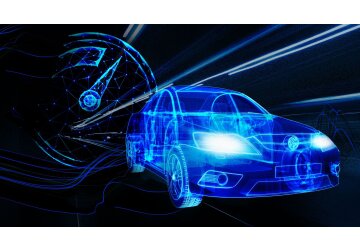
What are noise-detecting cameras and how will they crack down on Britain's loudest drivers?
Noise-detecting cameras targeting drivers are en route to more of the UK in the coming weeks. If the expanded trial is deemed a success, the government says the cameras could be rolled out more widely.
There is no shortage of speed cameras on Britain's roads, and plenty of us have likely fallen foul of them at some point.
But soon, more of the transport network will be under the gaze of another piece of technology monitoring how we drive.
Noise-detecting cameras are on their way to more parts of the country in the coming weeks.
Having initially been deployed in an area of Bradford, drivers in Birmingham, Bristol, and parts of Norfolk will also be monitored.
If the expanded trial proves successful, the rest of the UK could well follow suit.
So, how do they work?
Speed cameras are familiar to us all - they monitor vehicles using sensors in the road or radar, snapping a digital image of any found to be going too fast.
Noise cameras will also have a camera, but rather than being called into action by speed, they will instead take the sound level into account using on-board microphones.
The recordings are accurate enough, or should be, to identify exactly which vehicle was behind the offending noise, whether that be an unnecessary rev of the engine or a loud illegal exhaust.
They will also be able to distinguish such sounds from the wider environment.
"A cross between Shazam and a normal number plate camera" is how Sharon Kindleysides, chief executive of the Chartered Institute of Logistics and Transport, puts it.
"The camera does what it does best, looking at the number plate, what sort of vehicle it is," she told Sky News.
"And the microphone can identify the noise pattern to identify that it is a vehicle, perhaps a loud exhaust, and not a building site or someone playing their stereo too loudly."
How will the recordings be used?
The audio will be used with images to form a "digital package of evidence", the Department for Transport says.
Police will examine the files to see if fines need to be issued as part of a "clampdown on those who break legal noise limits or use illegal modified exhausts to make excessive noise".
Road regulations say vehicle exhausts and silencers are expected to be appropriately maintained and not altered to increase the level of noise produced. A lack of compliance could lead to a £50 on-the-spot fine.
Ms Kindleysides says that during the trial phase, more human input will likely be required.
"In the early days I'd imagine there will be a lot of manual intervention, until they prove it works," she said.
What could the future look like for noise cameras?
If the expanded trial is deemed a success, the government says the cameras could be rolled out more widely.
The next phase will see their exact location determined by the impact of noisy vehicles on local people.
Ms Kindleysides says the technology could be targeted, such as cracking down on cars idling outside schools.
"Speed cameras are everywhere, but this will be more niche and probably be tied to the local authorities (in terms of where they are used)," she added.
Sam Lancia, of video security firm Ava Security, expects the technology to become more widespread.
He said: "As this technology proliferates, it will also be paramount in speeding up post-event investigations and increasing transparency.
"Noise detection cameras provide greater detail for anything that may have occurred, and we should expect their use to grow at a pace."
news.sky.com







